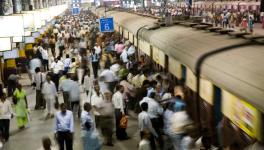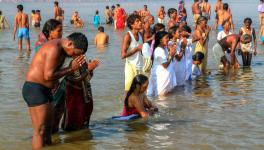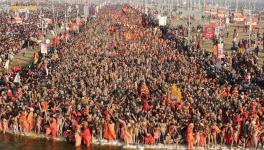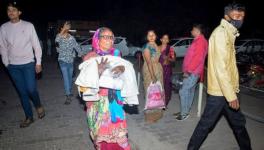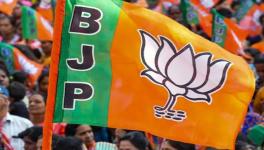Myth of Decisive Influence of Deras in Punjab Politics
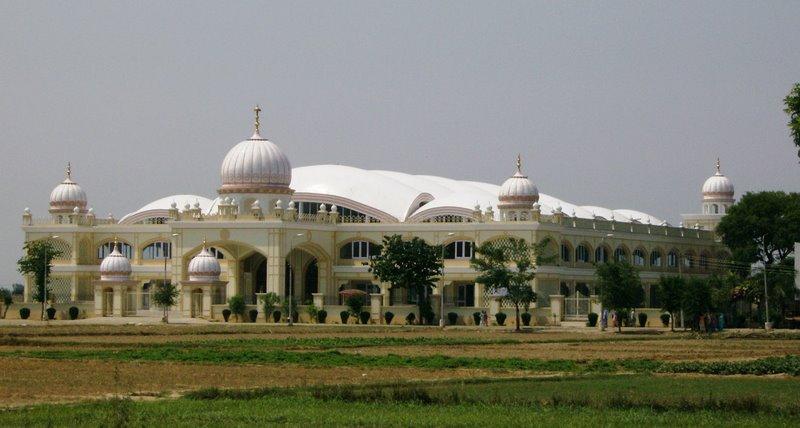
It has become a trend to talk about religious deras in the context of the politics of Punjab. This fad has caught on to such an extent that many media outlets regularly write and comment on how the heads of certain deras influence voters to support particular parties. Much of this so-called influence seems overstated and reflects a misunderstanding of the role of deras. In reality, the latent implication of this talk about dera influence is that the people of Punjab are so politically naive as devotees and so ignorant of political realities that they follow their religious leaders, even those who can boast of a mere few thousand followers.
Thanks to this trend, whenever politicians visit deras, it gets interpreted as evidence of their influence on election outcomes. However, it is a mistake to believe that dera hangouts could influence elections and also to assume that Punjabi voters do not make autonomous political choices. The issue of deras in Punjab politics has never been analysed from an altogether different perspective: the obvious question should be whether the deras need political patronage for their sustenance.
To understand deras and politics, we need to make sense of the political economy of religion, from which they are inseparable. Most deras in India have allegiance to one or another religious tradition in Hinduism and Sikhism, although, in Islam too, Sufi saints have similar meeting places. Further, when combined with major religious centres, deras become a multi-billion economy that primarily draws its wealth from the offerings and donations of devotees and followers. As a result, deras accumulate tremendous unrecorded wealth through which they expand, adding more and more chunks of land to their kitty. Their wealth fosters within deras certain profane—in contradistinction to the sacred construction of their religious tradition—needs, which keep growing ever-higher, forcing dera chiefs to take an interest in politics.
In other words, the relationship between deras and political leaders sustains through common interests. However, there is one point of distinction: political power may not necessarily remain in the hands of a particular leader or party indefinitely. As a result, the heads of deras tend to accommodate the Opposition party with the highest probability of replacing the incumbent party. Put another way, the relational dynamics of deras are no different from that of wealthy industrialists who donate money to political parties based on a hierarchy of probability of attaining power. Or, in other words, the party that has the maximum chances of coming into power gets more donations than the others. If an industrialist must sell a commodity in a favourable environment, the deras need patronage to cover some of their activities, particularly those involving acquiring properties. Sometimes, deras also need protection, for example, if they suffer from the Asaram Bapu syndrome.
However, the underlying normative assumption related to the role of deras in politics is that people do not have autonomy of choice in selecting a leader to vote for. Or that they are so blinded by faith in a saint that they obey him without raising any doubts. This kind of perception began to occupy the minds of analysts after the demolition of the Babri masjid in 1992 and when more and more sadhus, yogis and sadhvis began participating in politics. Uma Bharti was the first such person who became the chief minister of Madhya Pradesh, recently followed by Yogi Adityanath in Uttar Pradesh. In a way, the rise of communal politics in India is directly associated with the rise of the political influence of religious leaders.
However, the primary issue is whether the influence of religious leaders is decisive in electoral politics. The distinctive feature of Punjab is that unlike the communal discourse in the Hindi heartland, there is a total absence of the “other” defined as the enemy. In Punjab, the role of deras seems overemphasised because similar conditions prevail in many other parts of the country. The only specific characteristic of Punjab is the numerical preponderance of the Sikh community, which may appear religiously homogenous, but actually has many sects and denominations within itself. For example, Namdharis, Seva-panthis, Nihangs, Nanak-panthis, Nirmalas, Udasis, etc., though the Khalsa denomination dominates the religious and political landscape and others may solely associate the Sikh community with the Khalsa identity and its turban-clad unshorn hair. Numerically, the Hindus come next and are equally divided in terms of religious dispensations, although Sanatanis and Arya Samajists are higher in strength than others.
In light of the above, it is essential to know how to understand the deras of Punjab within the framework of electoral politics. Note that Punjab has around 10,000 deras, but experts mention mostly mention only four when it comes to their influence on elections: the Dera Sacha Sauda headquartered at Sirsa (Haryana), the Radha Soami Satsang based in Beas, the Dera Sachkhand Ballan near Jalandhar, and the Bhaniarawala Dera of Ropar. The Dera Sacha Sauda and Radha Soami Satsang are eclectic in terms of their religious calling, in the sense that their preachings tend to syncretise Sikh and Hindu religious traditions. As a result, their followers include people belonging to both communities and all caste groups. On the other hand, the Dera Sachkhand Ballan has an exclusive following from the Chamar caste.
The Bhaniarawala Dera is of recent origin, and its following is confined to the Mazhabis. It began to acquire prominence in the early 1990s when Buta Singh, then a Union Minister, visited Piara Singh Bhaniara to seek a cure for his ailing wife. After this visit, the dera attracted politicians but came into conflict with the Sikh establishment. This conflict resulted in the imprisonment of Piara Singh Bhaniara on the issue of sacrilege of the Sikh holy book. After his release, Bhaniara continued his activities despite threats from some Sikh outfits. He died in 2019, but the dera remains influential among the Mazhabis.
Most of these deras of Punjab try to maintain a distance from politics, but politicians leave no stone unturned to garner votes through them during elections. The result is that they visit the deras, which they think could impact voters in their respective constituencies. In addition, the significance of these deras is highlighted by election experts and other social scientists. The role of deras is unnecessarily exaggerated, and, as a result, it has become challenging for social analysts to situate them in their rightful place.
The deras have played a twofold role in the Punjab elections. First, politicians have started frequently visiting them during elections with the view that they should also go to places where people gather. Second, certain deras have become proactive in blessing some candidates. The roots of this phenomenon lie in the overt behaviour of the two major political parties in Punjab, which may have influenced Sikh voters in the past. Both Akali Dal and Congress party leaders used to organise separate podiums on certain days of great importance involving the Sikh gurus, which would attract audiences. While this phenomenon is years-old, ironically, in 2017, even the Aam Aadmi Party established platforms on these occasions at some places.
When viewed from a broader perspective, many other deras located in different parts of Punjab should also be considered politically significant in proportion to their followers. No such attempt is made to establish the role of deras in electoral politics conclusively. If we assume that all politics is local, then even a small dera with a few thousand followers can be expected to exercise influence. However, such deras never draw serious attention. If there is clear evidence of the impact of deras, as is claimed for the Dera Sacha Sauda, then it will be confined to certain areas, and a few thousand votes that may or may not turn out to be decisive to an election. For example, in the 2007 Assembly election, an Akali Dal-Bharatiya Janata Party alliance formed the government, whereas the Dera Sacha Sauda had allegedly asked its followers to vote for the Congress party. The decisive role of deras in politics is a myth perpetuated by the behaviour of many desperate politicians and election analysts, who essentially do not take cognisance of the mix of conditions that influence voter behaviour.
The author was a professor of sociology at Guru Nanak Dev University, Amritsar, and is a former president of the Indian Sociological Society. The views are personal
Get the latest reports & analysis with people's perspective on Protests, movements & deep analytical videos, discussions of the current affairs in your Telegram app. Subscribe to NewsClick's Telegram channel & get Real-Time updates on stories, as they get published on our website.












